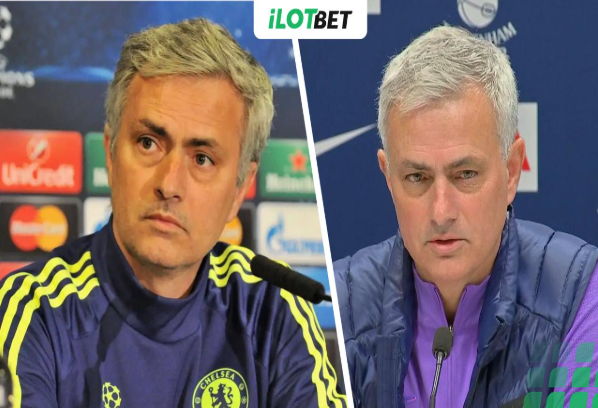
If you think being a football manager is a dream job, just take a look at the before-and-after pictures of some of the biggest names in the business. The transformation is often shocking—lush, dark hair turns gray, wrinkle-free faces become lined with stress, and some even lose their hair entirely!
The big question is: do football managers actually age faster? Or does it just seem that way because of the relentless pressure of the job?
The Stress Factory That Is Football Management
Football management isn’t just about tactics and team selection—it’s a never-ending cycle of pressure, expectation, and brutal scrutiny. Unlike players who can get subbed off, managers have nowhere to hide. Every decision they make is questioned, every loss is a disaster, and every win is just a brief sigh of relief before the next battle begins.
There’s the stress of dealing with egos in the dressing room, boardroom politics, demanding fans, relentless media, and, of course, the ever-looming sack threat. The result? A level of mental and emotional strain that would make even the most resilient person buckle.
Let’s take a look at some real-life examples of managers who seemed to have aged decades in just a few years.
José Mourinho (Chelsea to Spurs and Beyond)
When José Mourinho first arrived at Chelsea in 2004, he was the self-proclaimed “Special One” with slick dark hair, a sharp suit, and an air of invincibility. Fast forward to his stints at Manchester United and Tottenham, and we saw a different man—grayer, visibly more stressed, and occasionally looking like he had lost a battle with sleep deprivation. The constant pressure of the job clearly took its toll.
Pep Guardiola (From Barcelona to Manchester City)
Guardiola’s evolution is another glaring example. His fresh-faced look as Barcelona’s boss was replaced by a much older-looking, often bald, and stress-ridden Pep by the time he took charge of Manchester City. Success has followed him everywhere, but so has the stress of maintaining that success.
Jurgen Klopp (Dortmund to Liverpool)
Klopp’s transformation is perhaps the most obvious. At Borussia Dortmund, he was full of youthful exuberance, flashing his trademark smile at every opportunity. Fast forward to Liverpool, and though still passionate, Klopp has had his fair share of moments looking drained, tired, and occasionally ready to rip his hair out (or what’s left of it).
Arsène Wenger (22 Years at Arsenal)
Perhaps no one embodies this phenomenon more than Arsène Wenger. When he arrived the English Premier League in 1996, he looked like a sophisticated professor. By the time he left in 2018, he looked like a battle-worn general who had been through every kind of war imaginable. The stress of managing the same club for over two decades clearly showed on his face.
The Science of Stress and Aging
It’s not just a visual illusion—science backs up the idea that stress accelerates aging. Chronic stress increases cortisol levels, which damages DNA and shortens telomeres, the protective caps at the end of our chromosomes. The shorter the telomeres, the older and more worn-out we look. In other words, a football manager’s constant exposure to high-pressure situations can quite literally make them age faster.
Some managers cope better than others. Carlo Ancelotti, for example, remains as cool as ever, handling pressure with an almost Zen-like calmness. Perhaps it’s his relaxed attitude, or maybe it’s just good genetics. But for most managers, the only escape from this accelerated aging process is… well, leaving the job altogether.
Football management is one of the most stressful jobs on the planet. The pressure to win, the constant scrutiny, and the lack of job security all contribute to a career that is as thrilling as it is draining. The next time you see a manager looking ten years older after just three seasons, remember—they didn’t just age; they survived the football management gauntlet.
For football fans who think they can handle the pressure of making predictions and winning big, why not put your knowledge to the test? Sign up with iLOTBET today and experience the thrill of the game from a different perspective!
The post Do Football Managers Age Faster? The Stress Behind the Job appeared first on Vanguard News.








